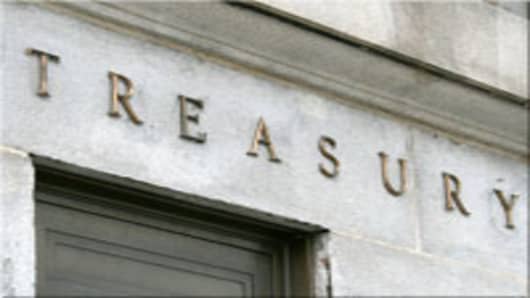We've all had bad days at the office. And, if you've worked in the financial services industry long enough, it's even likely that you have made a mistake that cost a financial institution some money. (Note: The phrase "Look, bad trades happen!" Is still highly unlikely to buy you much sympathy from your boss.)
But when it comes to goof ups: Very few of us have the power to push up the borrowing costs of the federal government of the United States of America.
That's exactly what seems to have happened yesterday to Steven A. Hess, a senior analyst at Moody’s.
The Financial Times Alphaville blog is reporting that Mr. Hess made the following observation to Market News International:
"'Clearly, an extension of the tax cuts that had been implemented by the Bush administration in 2001 and 2003 'is not good' from a deficit/debt perspective, but such a measure, if temporary, would not immediately jeopardize the U.S. sovereign rating,' Moody’s lead analyst for the United States told Market News International Monday.
He cautioned, however, that, 'A permanent extension of the tax cuts would be a definite negative.' And over the medium term, pressures on the sovereign rating could develop if the country does not adequately address its debt trajectory.'"
Oh, yes: He did.
And when "Moody’s lead analyst for the United States" suggests that the US could lose its Triple-A rating, markets react.
When the Financial Times itself reported the spike in treasury rates, the reporter actually seemed nonplussed.
Here is the lede:
"When the world’s most powerful central bank declares it is going to buy lots and lots of government bonds, the yields on those bonds should fall. Or at least that’s the theory."
And the equally bemused nut graf:
"But since the Federal Reserve earlier this month announced it would embark on a second round of quantitative easing, or QE2, yields on US Treasuries, which move inversely to prices, have risen sharply in volatile trading."
Ultimately, Mr. Hess clarified his statement to Bloomberg news:
"We have a Aaa outlook for the U.S. that is stable and we are not contemplating changing anything anytime soon, that is the bottom line."
Hess continued to put his earlier remarks into context—and to reassure:
"'A permanent extension of the tax cuts without doing something to offset it would make it more difficult to avoid the continual upward trend in the deficit,' Hess said.' There are many facets to the country’s credit rating,' and any ratings action would result only if a spiraling, unaddressed deficit that took place 'over the next decade'."
No further mention is made of Mr. Hess's fate—except for the humorous suggestion that he may be in for some 're-education.'
The FT's Alphaville concludes by pointing out the following:
"The yield on the 10-year US Treasury has recovered to 2.90 per cent this Tuesday, having reached a three-month high of 2.95 per cent on Monday."
Five basis points may not sound like a lot—but when you consider the dollar volume of U.S. Treasury securities—and the potential shift in price levels for all fixed income securities that trade at spreads over treasuries—the total dollar variance caused by five one hundredths of one percent is likely to be gargantuan.
___________________________________________________
Questions? Comments? Email us atNetNet@cnbc.com
Follow NetNet on Twitter @ twitter.com/CNBCnetnet
Facebook us @ www.facebook.com/NetNetCNBC


